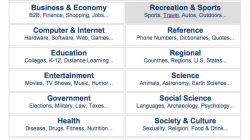After I completed my graduate education, I started booking all of my reservations as “Dr. Scott Mackenzie” instead “Mr. Scott Mackenzie.” I don’t make a fuss if some people say “Mr.” anyway, but I earned the new title and think it’s only fair to include it when the option is available.
My interest is whether such a change actually results in better service or merely boosts my ego. After all, anyone can change their title on a reservation. It would be the easiest “status match” ever, although the benefits would be entirely unofficial.
Here’s a recent example from United Airlines. For all their faults during the merger, I think customer service has really been improving lately. On my flight back from the Frequent Traveler University in DC, we had a flight attendant in first class doing such a great job he earned a letter to 1K Voice. The odd thing was he addressed everyone by his or her first name except me. I was referred to only as “Doctor.”
“Doctor, would you like more wine?”
“Doctor, would you like the steak or the pasta?”
“Will you be joining us for dessert, Doctor?”
Not “Dr. Mackenzie” but just “Doctor.” It was strange. Addressing passengers by their first names is a little strange, too, but “Doctor” isn’t even a name, and he does know what my name is since it’s right there on the passenger manifest.
So it got me thinking: Is he doing this as a sign of respect or is he mocking me? I find it hard to believe an employee serving passengers in the premium cabin would ever mock a customer.
If it is a sign of respect, one imagines that could spill over to slightly better treatment in other areas, too. Maybe he’ll be more attentive about refilling my drink. If this were a hotel, maybe the clerk would be more willing to give me a discretionary upgrade to a better suite. I can’t point to any specific perk I’ve received thanks to my title, but you can’t deny it stands out from “Mr.”
Here’s a different take: maybe my unique title just means I’m paying closer attention to whether someone actually uses it. Even if it doesn’t bother me much, I do notice when someone says “Mr.” and not “Dr.” As a side effect of listening for that finer distinction, I am also paying attention to the broader distinction between employees who use names and those who don’t. The flight attendant on my connecting flight never did anything to acknowledge individual passengers. Addressing people by name made the first flight attendant seem more professional and courteous even if I thought using first names was odd.
And from there we can take it one step further. Employees who are indifferent and never address customers by name may also be more likely to give poor service. Employees who show attention to detail and address people by name, whatever their different titles, may be more likely to give good service. One reason the first flight attendant earned a complimentary letter to 1K Voice is that he asked about the temperature of the food, created a little origami with my napkin, and checked on me frequently. The second one, who didn’t address anyone, passed out lukewarm food and disappeared to the galley.
It may not be me, the “Doctor,” who is getting special treatment but rather all customers who come into contact with such employees who bother to pay attention. It’s an easy thing to overlook, just two letters before a name, but a series of small actions can make a big impact on the customer experience.

